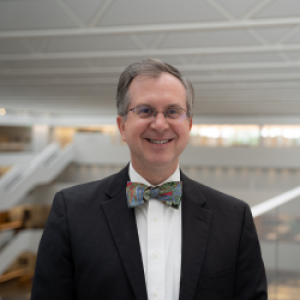By Tyler Reimschisel, MD
In early February, the Office of Interprofessional and Interdisciplinary Education and Research hosted a retreat on interprofessional education and collaborative practice. Our invited guests were Stella Ng, MSc, PhD, and Maria Mylopoulos, PhD, from University of Toronto. Ng is the director of the Centre for Advancing Collaborative Healthcare and Education at the University of Toronto and the University Health Network. Mylopoulos is the program director of health professions education research in the Institute of Health Policy, Management and Education and associate director of training programs for the Wilson Centre at the University of Toronto. The university s recognized internationally for its leadership and expertise in interprofessional education and collaborative practice.
In their presentations and workshops, Ng and Mylopoulos discussed fundamental lifelong learning practices including adaptive expertise, reflective practice and productive struggle. Although they focused primarily on the application of these concepts to health professions education, in this article I would like to discuss how the practice of adaptive expertise could be applied to established clinical teams. My discussion is based on their review article about these concepts (Ng et al, 2022) as well as conversations I had with them while they were visiting.
Adaptive expertise is the ability of healthcare professionals to handle uncertainty when their prior training and experience are insufficient to address the complexity or novelty of the needs of patients, communities and the society where the professionals are working (Mylopoulos et al, 2016). Instead, they must be flexible and adaptable in identifying viable solutions to the problems.
Based on what I know about the literature of adaptive expertise—and I am definitely not an expert in this field—I am struck by how much emphasis is placed on the individual professional’s ability to flexibly and adaptively generate novel and innovative solutions to complex, unfamiliar and unique problems. In addition, effective adaptive expertise must include a balance between this innovation and efficiency (Schwartz et al, 2005). These requirements seem especially onerous given the demands on healthcare professionals’ time and energies as they practice in settings that are frequently short staffed, overworked and just beginning to recover and heal from COVID-19.
Yet many of the characteristics of adaptive expertise are also characteristics of high-impact teams. In fact, the TeamSTEPPS’s definition of a team includes many of the same terms and concepts and are used to define adaptive expertise:
A team is two or more people who interact dynamically, interdependently, and adaptively toward a common and valued goal, have specific roles or functions, and have a time-limited membership (TeamSTEPPS).
I think that adaptive expertise among individual healthcare professionals is essential to being an excellent clinician. However, I think we are more likely to achieve this goal if we work with our teammates to solve complex and unique problems instead of trying to do the work independently or in isolation from our teammates. In well-managed teams, we are more likely to achieve better solutions if we work interdependently with our teammates and others to leverage our diverse professions, perspectives, lived experiences and other intersectionalities. So, the next time you are stuck in your work with a problem you cannot solve, a situation you do not know how to handle, or a challenging case without a straightforward solution—lean into your team’s expertise and think creatively together instead of trying to handle it on your own.
References:
Mylopoulos M, Brydges R, Woods, NN, Manzone J, and Schwartz DL. Preparation for future learning: a missing competency in health professions education? Medical Education 2016; 50(1): 115-123.
Ng SL, Forsey J, Boyd VA, Friesen F, Langlois S, Ladonna K, Mylopoulos M, Steenhof N. Combining adaptive expertise and (critically) reflective practice to support the development of knowledge, skill and society. Advances in Health Sciences Education 2022; 27:1265-1281.
Schon DA. The Reflective Practitioner: How Professionals Think in Action. New York, NY: Basic Books, 1983.


